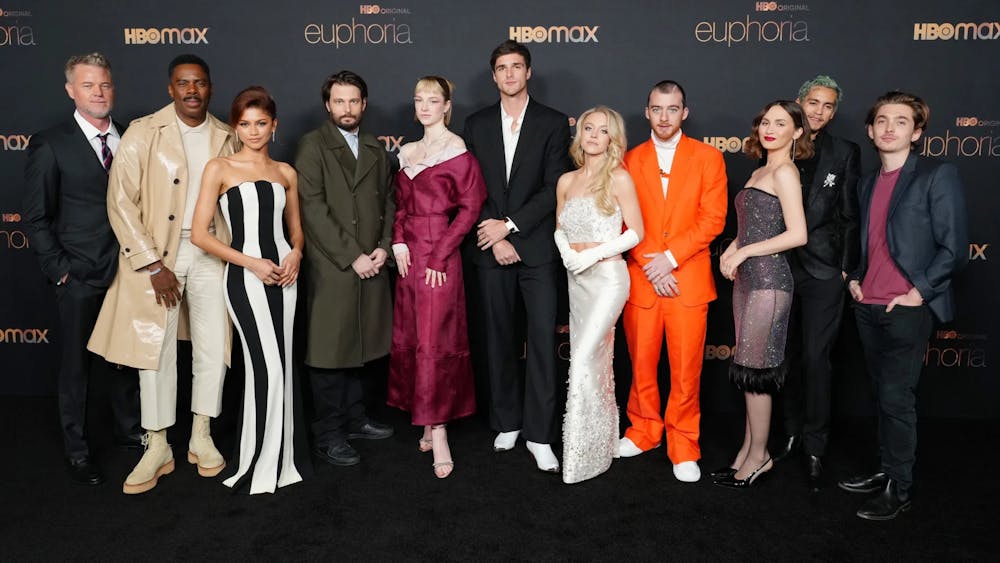As Euphoria’s second season comes to a close, it only seems fitting to comment on the new season. Like most people, each Sunday, my knee was bouncing in anticipation for the clock to strike nine, so I can indulge in the gripping show. With that being said, Euphoria is undoubtedly an aesthetic masterpiece. It is filled with breathtaking cinematography, amazing costume design (excuse me while I try and inevitably fail to do some of those incredible makeup looks), and one of the most pitch perfect soundtracks I have ever heard, courtesy of Labyrinth. Sam Levinson overall has done a fantastic job in creating a thrilling show that leaves the audience on the edge of their seat.
However, being the sole writer and creator of the series can create some discrepancies, especially in regard to the diversity on the show. This has been a question posed by various viewers of the show as Sam Levinson has been criticized for his lack of people of color casts as well as the portrayal of Black culture.
Firstly, it is important to note that Euphoria is one of the most diverse shows on HBO at the moment, and at the same time it isn’t. In terms of representing the LGBTQ+ community, Euphoria receives full marks as it is a pinnacle of positive representation. Although many are appalled (myself included) by its graphic nature, it cannot be denied that the series paints a deeply authentic picture of queer people in a way that many shows have been unable to capture. One of the main romantic plots is a love story between two girls, Rue (Zendaya) and Jules (Hunter Schafer), and it’s presented as just that, a love story. Euphoria also handles the character’s sexualities extremely well. This is mostly rooted in the show’s notable lack of labels. They are not mentioned once. And as such, the characters are never boxed into stereotypes—they are allowed to just be. Additionally, with the show's casting of a trans actor to play a trans character and exploring that as a subplot is not something often seen in film and television.
In terms of representation of people of color in the cast, it can be said that Euphoria is lacking in that department given that the majority of the cast is white, which leaves many of Euphoria’s non-white audience craving a more racially diverse cast. Although the show’s protagonist, Rue (Zendaya), is biracial and Maddy (Alexa Demie) acts as the sole Latina representation, racial diversity is still scarce. There are also little to no characters of Asian descent–apart from Elliot (Dominic Fike) who is half Filipino– which isn’t accurate given the show is set in California with a prominent Asian community.
In addition to this, the show’s characters of color and LGBTQ+ characters suffer from inadequate writing from the show’s creator and sole writer Sam Levinson. Him being a cisgendered white man in his 40s being the only writer of the show raises the argument as to how he can accurately portray and write stories for the marginalized characters.
One of the only Black characters, McKay (Algee Smith), is a football prodigy which fuels the already common stereotypes of Black men having to be hyper-athletic and hypemasculine was introduced in season one, and his storyline has seemed to be abandoned in the new season. Levinson wrote McKay getting sexually assaulted into the story for it to never be acknowledged and developed or for McKay to heal. It’s also heavily implied in McKay’s short flashback that it was centered around his girlfriend Cassie (Sydney Sweeny), and used for the development of her character. Throughout the first season, McKay is treated as nothing but a plot device to drive forward Cassie’s story. Especially, as he was completely absent in the new season. His character enduring something so traumatizing, even just to watch, just to be sidelined. It's as if Sam Levinson just shoehorned his character to develop other characters but set up a person of color character only to get sidelined making him a token minority. Not to mention the common racist stereotyping of McKay being a football player plays into the hyper-masculine and hyper athletic trope often associated with Black men. Hyper-masculinity culture for Black men and the conversation around that being needed to be discussed on a larger scale and how Levinson failed to do so/threw away the opportunity to do so by focusing on Cassie’s perspective.
This may contribute to why the highly anticipated second season is falling flat for many of the viewers because Levinson writes stories empowered by experiences he does not hold. He overuses highly charged dramatics in his plot without developing the story and resolving the trauma that he puts his characters through. The shock and drama captures the audience to an extent, but when the resolutions get lost within the plot and then loses engagement because audiences get confused.
Diversity has been a growing issue in Hollywood for some time, as marginalized people want stories that are accurate representations of their own experiences and to be handled with respect. While there is a demand for a more racially diverse cast, it means that there needs to be a racially diverse writers room. Euphoria is still considered one of the most diverse series on television at the moment, even though there's still a disparity in the people of color casted which just goes to show that there is still work needed to be done in the entertainment industry so that it can be representative of the world that we experience.



